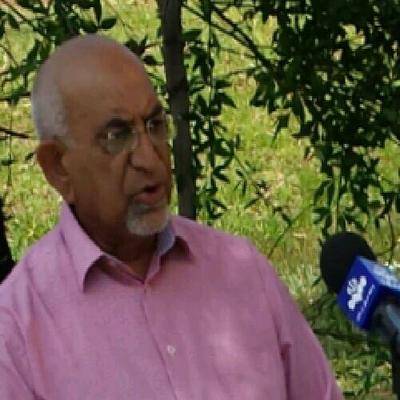In the midst of a full-blown controversy sparked by a decision to allow Israel “observer status” at the African Union, it is crucial to note that the Zionist colonial settler regime hasn’t halted its violent plunder of Palestinian rights while relentlessly pushing ahead with illegal settlements in the Occupied Palestinian Territories. Strange as it sounds, the bizarre reality is that the unauthorised move by AU Commission Chair Moussa Faki Mahamat has resulted in leaders across the African continent facing divisive consequences of a rash, unwise and problematic decision. It is pertinent to ask if the AU has declared war on its own member states as a result.
If not reversed, Faki’s unilateral decision will allow Israel to adversely influence the historic solidarity of the continent with Palestine. That it has been Israel’s game plan to nullify Palestine’s freedom struggle is a long-established fact. Foolishly, Faki has become the latest sucker who for unknown reasons has fallen victim to this. When news broke from Israel celebrating its admission to the AU, it is revealing that the union’s website was conspicuously silent. Only days later did Faki confirm it, thus giving rise to speculation about a secret, back-door deal.
The resultant outrage by member states from Algeria to Botswana demanding answers — and implying that the admission process was flawed — has grown louder. Lesotho has joined the call for the rescission of Israel’s observer status and slammed Faki’s decision as unilateral.
READ: Israel’s observer status may divide the AU
In its own harsh critique, the South African government said it was appalled by the “unjust and unwarranted” move which it adamantly claims has been taken “unilaterally without consultations with its members.”
Also disassociating itself from the decision, the government of Botswana maintains that the continued occupation of Palestine violates the letter and spirit of the Constitutive Act of the African Union, as well as its obligation to respect and implement UN Resolutions. Namibia too has expressed its disappointment and objected to Israel’s observer status.
Algeria is rallying support among other African countries in an effort to establish a bulwark of opposition to Faki’s move in order to have it rescinded. According to Algerian media, the country’s Foreign Minister, Ramtane Lamamra, has said that he will “not stand idly by in front of this step taken by Israel and the African Union without consulting the member states.”
Although mixed signals from Egypt have clouded its possible stance, to date no official announcement has been made. Whether the Abdel Fattah Al-Sisi regime opposes Israel’s admission or falls in line with Algeria’s initiative will in all likelihood be subject to the degree of pressure applied by the Biden administration in Washington on behalf of the colonial-occupation state. In other words, Egypt’s dependence on the US will in all probability dictate that it goes along with Faki’s unilateral decision.
At a time when popular opinion in Cairo is reflected in studies undertaken by a number of universities and think tanks which point to concerns about Israel’s agenda in Africa, it is nevertheless unlikely that Egypt will challenge the Zionist entity. However, if Libyan media sources are correct, the embassies of Comoros, Tunisia, Djibouti, Mauritania, Libya, Algeria, and Egypt have submitted a strongly worded joint statement to Faki, rejecting his decision. The joint statement is reported to have argued that the unilateral decision constitutes an unacceptable procedural and political violation of AU policies and processes. Whatever game Egypt may be playing, if indeed it is one of the signatories while maintaining an official silence it is evident that more countries have announced their rejection of the AU Commission’s decision.
Finally feeling the heat, Faki issued a belated statement providing a lame excuse for his decision. He said that it was made on the basis of recognition of Israel and the restoration of diplomatic relations by a majority of AU member states. In an effort to justify his misguided action, Faki claimed that it “falls within his full sphere of competence, without being tied to any preliminary procedure.” His statement defies the objections raised by member states who argue that he overstepped the mark of his authority.
Unless Faki is held to account and disciplined for embroiling the AU in an unacceptable messy controversy that reflects the hallmarks of a dictator, Israel is set to exploit a divided union.
OPINION: The status quo is being reinforced for Israel’s benefit
While the controversy rages, it is important to remind AU member states of their responsibility to adhere to various international conventions which Israel has violated. As a serial perpetrator, the Zionist entity is not only guilty of the crime of Apartheid, but also stands accused of war crimes, crimes against humanity, and incremental genocide.
International humanitarian law of occupation contains a prohibition against deporting or transferring parts of the civilian population of the Occupying Power into Occupied Territory. Such illegal transfers carried out by Israel are ongoing and intended to alter the composition of the population of the Occupied Palestinian Territories. They constitute a grave breach of Additional Protocol I, as well as being listed as a war crime under the Statute of the International Criminal Court.
The case against Israel’s observer status is unambiguous and strong. It demands that Faki’s decision be rescinded.
The views expressed in this article belong to the author and do not necessarily reflect the editorial policy of Middle East Monitor.


![African Union Committee Chairperson Moussa Faki Mahamat in Yokohama on August 28, 2019 [TOSHIFUMI KITAMURA/AFP via Getty Images]](https://i0.wp.com/www.middleeastmonitor.com/wp-content/uploads/2021/02/GettyImages-1164452473-scaled-e1613761089411.jpg?fit=1199%2C800&ssl=1)









